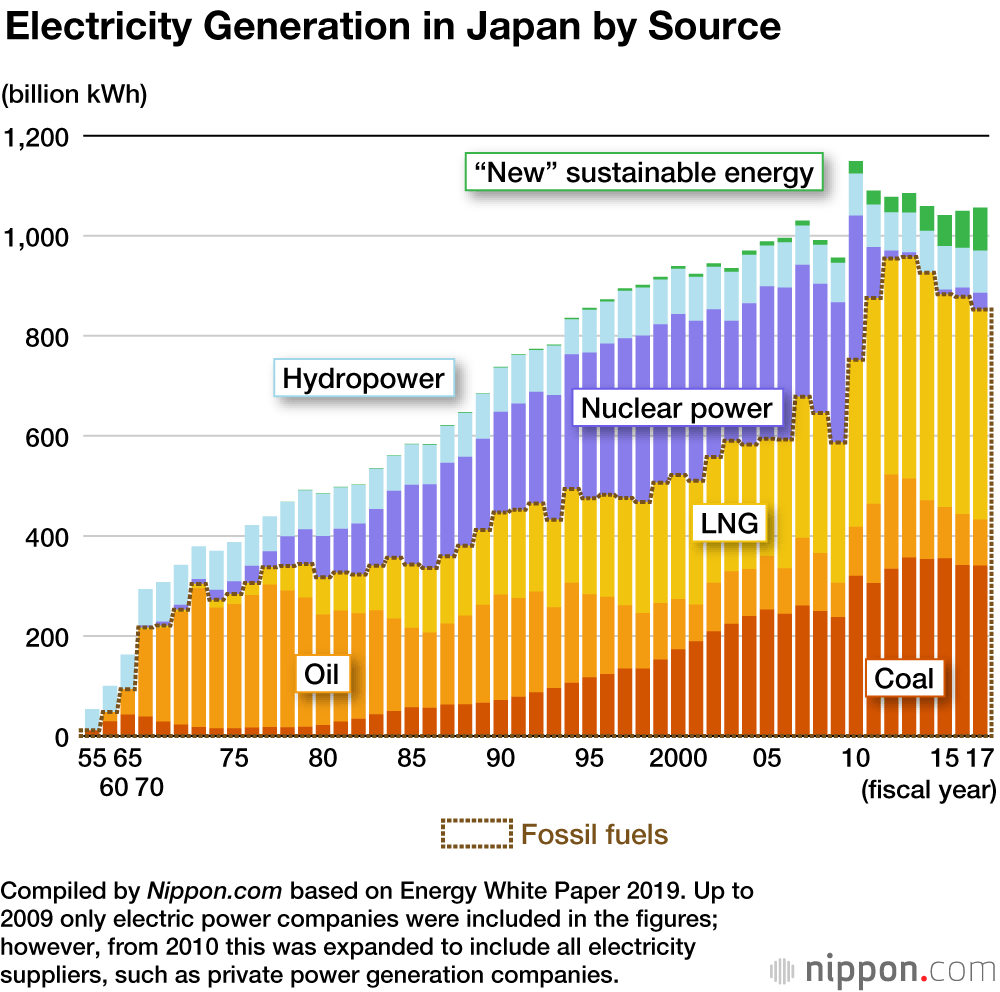Japan received its first award for Minister of Economy, Trade, and Industry Kajiyama Hiroshi’s statement following a cabinet meeting that Japan would like to keep options open for coal-fired power plants and use of other fossil fuels for power generation. The second award was given after Minister of the Environment Koizumi Shinjirō made a speech at the conference saying that there were no new developments on coal-related policies; an indication that Japan is not making efforts to phase out coal-fired power.
In 2017, Japan’s power generation breakdown was 39.8% liquefied natural gas, 32.3% coal, 8.7% oil, 8.1% “new” forms of sustainable energy, 8.0% hydro, and 3.1% nuclear. The amount of coal-fired power remained around the same level as that for 2016.
Since the Great East Japan Earthquake in March 2011, most nuclear power plants have been offline, leading to greater dependency on fossil fuels for generation of electricity.

There are signs that Japan is beginning to wean itself from coal, though. In January 2019, Kyūshū Electric Power Company and Tokyo Gas abandoned plans to build a coal-fired power plant in Sodegaura, Chiba Prefecture, and instead have established a new company with the intention of constructing an LNG-fired thermal power plant. J-Power has also decided to downscale its project to build a coal-fired power plant in Ube, Yamaguchi Prefecture.